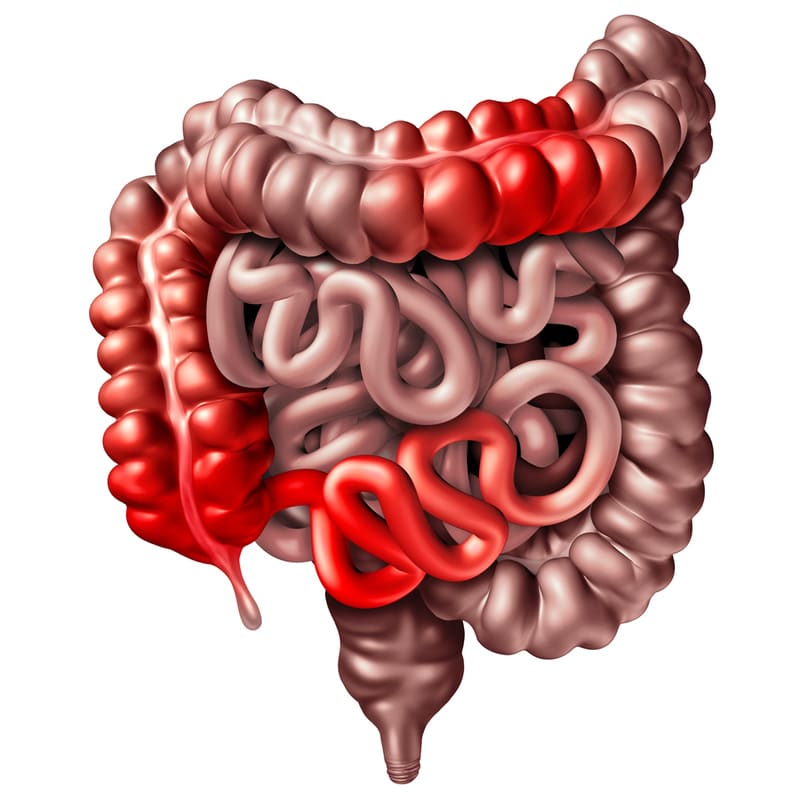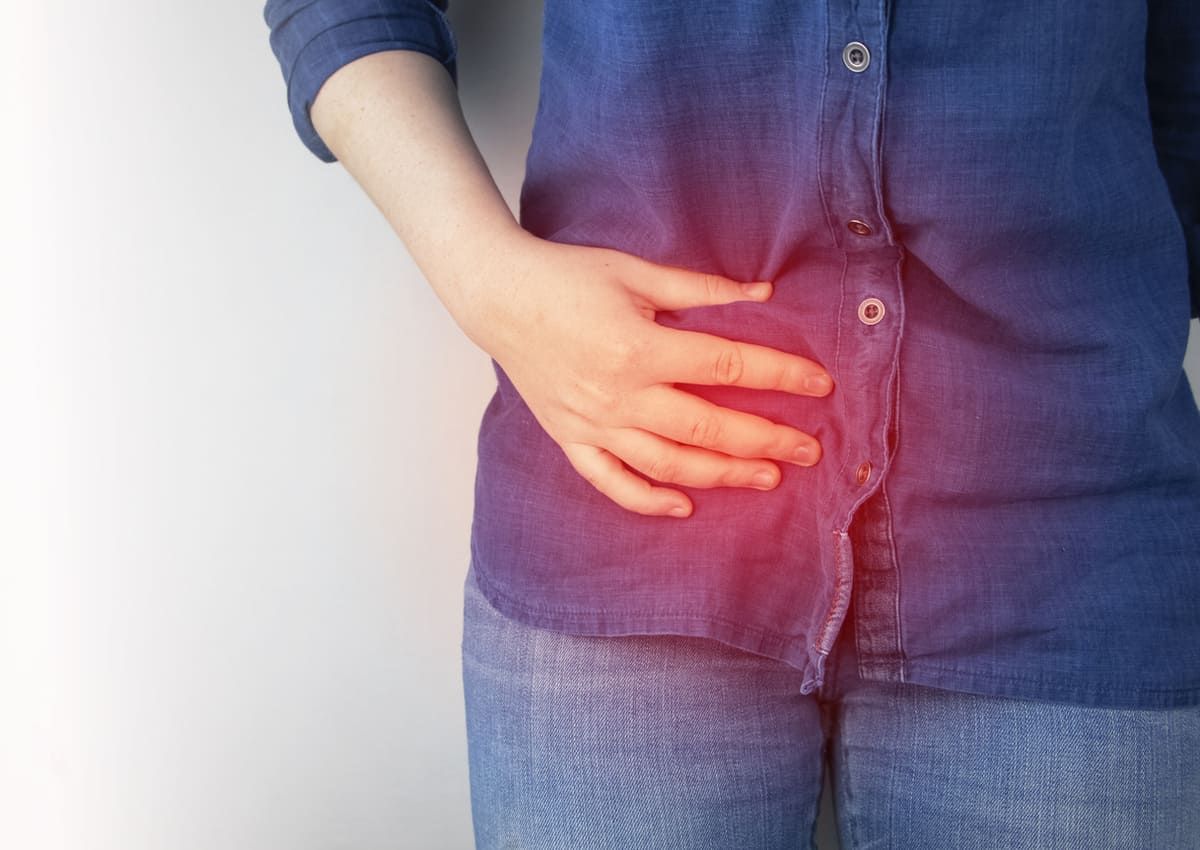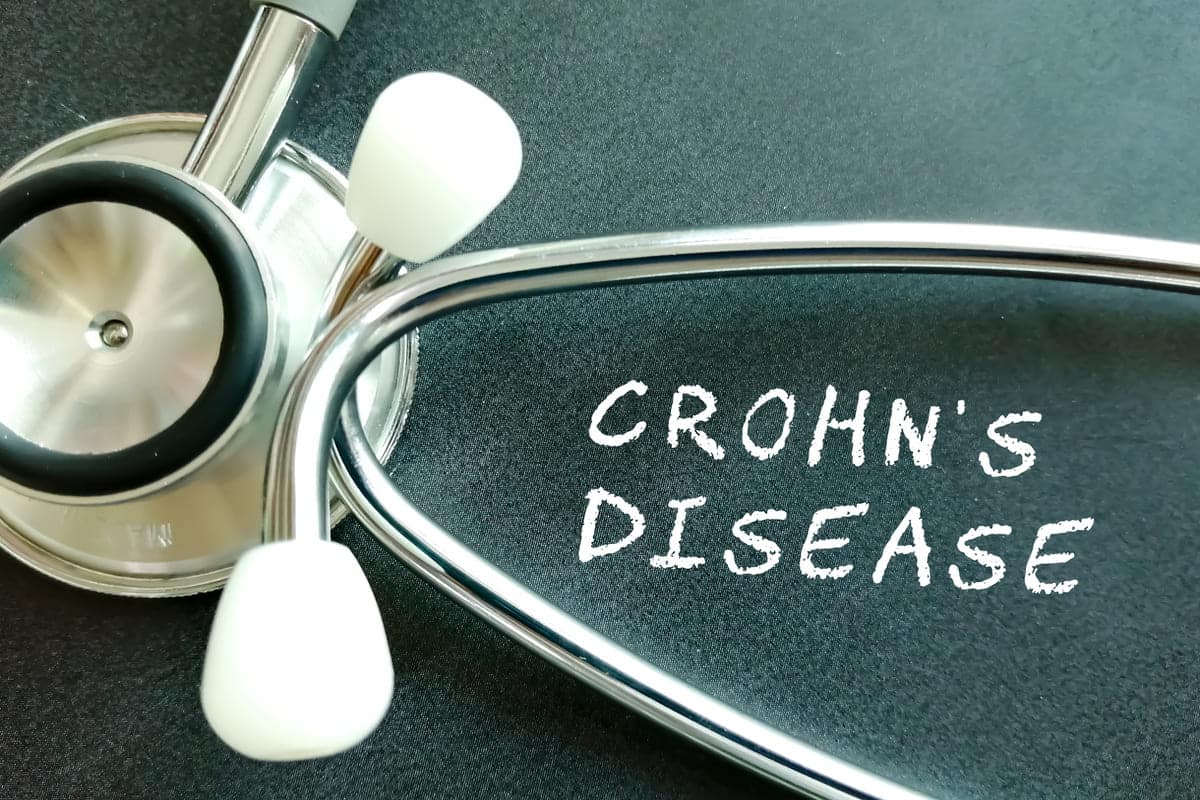Inflammatory Bowel Disease (IBD), a disorder in which the immune system attacks the gastrointestinal tract, affects millions of individuals in the United States. The two most prevalent forms of IBD are ulcerative colitis, which affects about a million people in the United States, and Crohn’s disease, which affects approximately 700,000 more.
In both conditions, the GI tract is attacked by the immune system, causing inflammation. While the inflammation from ulcerative colitis only involves the innermost layer of the GI tract, the inflammation from Crohn’s disease penetrates all layers.
Crohn’s Triggers

The causes of IBS and Crohn’s disease are not well understood, though factors such as heredity and abnormal immune functioning are suspected. People who develop Crohn’s are more likely to have a close relative with IBS, but many do not.
Some factors believed to influence the development of Crohn’s include:
- Antibiotics
- Autoimmune response
- Bacterial infections
- Birth control pills
- Eating spicy or acidic foods
- Food allergies
- Genetics
- High-fat diet
- Hormone fluctuations
- Lactose intolerance
- Pollution
- Regular use of NSAIDs
- Sedentary lifestyle
- Smoking cigarettes
- Stress
Crohn’s disease is further classified by which part of the GI tract is inflamed. The five most frequently recognized types include:
- Gastroduodenal: Inflammation occurs in the stomach and the duodenum, the uppermost part of the small intestine.
- Granulomatous colitis: Inflammation of the large intestine only.
- Ileitis: Inflammation of the small intestine only.
- Ileocolitis: Inflammation affects both the small and large intestines.
- Jejunoileitis: Patchy inflammation that occurs in the upper half of the small intestine, also known as the jejunum.
This disorder may cause chronic inflammation or be cyclic, with periods of remission that return months or years later. The progression of this disease is often inconsistent as well, with some individuals seeing relief as they get older and others experiencing an increase in symptoms.
Symptoms of Crohn’s Disease

Crohn’s disease can occur at any age, but it is most commonly diagnosed between ages 15 and 35. Patients diagnosed as preteens may have a more intense experience, and additional symptoms may emerge, such as sores on the skin or in the mouth. Individuals diagnosed after the age of 60 are more likely to have granulomatous colitis, affecting only the large intestine. Those who are in remission from Crohn’s disease are more likely to develop some form of IBS again in the future, but not necessarily the same type.
The inflammation from Crohn’s can trigger fairly wide-ranging gastrointestinal symptoms, which often vary somewhat depending on the type of Crohn’s disease the patient is experiencing. Loss of appetite and abdominal pain after eating are common symptoms of Crohn’s disease involving the gastroduodenal region, ileum, and jejunum. However, granulomatous colitis and ileocolitis are more likely to trigger diarrhea and rectal bleeding.
Symptoms of Crohn’s disease may include any of the following:
- Abdominal cramping
- Abdominal pain
- Anal fissures or fistulas
- Anemia
- Bloating
- Constipation
- Diarrhea
- Fatigue
- Fever
- Inability to pass gas
- Loss of appetite
- Nausea
- Oral or anal lesions
- Rectal bleeding
- Red eyes
- Skin tags (often on the buttocks)
- Ulcers
- Vomiting
- Weakness
- Weight loss
Unmanaged, Crohn’s disease can lead to dangerous complications, including infected abscesses, malnutrition, and toxic megacolon. In addition, tests are essential to rule out other disorders that require different treatments. Diverticulitis, colon cancer, GI infections, and even food allergies can mimic Crohn’s.
If you or someone you love is experiencing symptoms of Crohn’s disease, contact a medical professional for evaluation. In order to initially diagnose your condition, your physician is likely to recommend blood and stool tests. Depending on the results, they may follow up with X-rays, contrast tests, endoscopies, or biopsies.
Treatments
While there is no current cure for Crohn’s disease, we are learning more about this and other IBS conditions every day. There are several options available to slow the progress of the disease and reduce the number of symptoms experienced. Let’s explore some of these options:
Nutrition and Diet

A high-fat diet is often associated with the development of Crohn’s disease, and spicy or high-fiber foods may also aggravate the condition. Reducing the amount of these foods in your diet may diminish symptoms. Including foods with anti-inflammatory properties, such as leafy greens, berries, and green tea, may lessen the severity of symptoms.
Medications
Acetaminophen is safe to use for mild pain associated with Crohn’s disease. It is important to note that other NSAIDs, such as ibuprofen, naproxen, and aspirin, may make symptoms worse.
Amino-salicylates, which contain 5-amino-salicylic acid, are often recommended to treat mild cases of inflammation.
Corticosteroids, recommended for people with moderate-to-severe symptoms, repress the immune system. This action prevents the immune system from attacking the GI system but may increase the chances of developing other infections and illnesses.
Immunomodulators severely depress the immune system and can take several weeks to take effect. This medication is typically reserved for severe cases of IBS, as it can trigger serious side effects.
Bowel Rest
Resting your bowels may help control a severe Crohn’s flare-up by reducing the GI system’s workload. Your doctor may recommend a liquid diet for a few days to give your bowels time to heal at home. In certain situations, intravenous nutrition or a feeding tube at the hospital may be suggested.
Surgery

Crohn’s disease that doesn’t respond to other treatments may require surgery. Possible surgical procedures include removing polyps, tumors, or fistulas, widening the intestines, repairing intestinal perforations, or resecting the small or large intestine.
The Takeaway
Crohn’s disease is a poorly understood autoimmune reaction that causes inflammation of the gastrointestinal tract. The inflammation causes pain and interferes with the process of digestion. Symptoms of Crohn’s disease can range from a mildly upset stomach to severe malnutrition. The condition isn’t curable, but it is manageable.
Those afflicted with this disorder don’t have to suffer in silence and shouldn’t manage their disease alone. Depending on the severity of the condition, your doctor might recommend medications, dietary changes, or bowel rest. On rare occasions, surgery is required to relieve symptoms.
Read Next:
Is Menopause Giving You a Stomach Ache?







